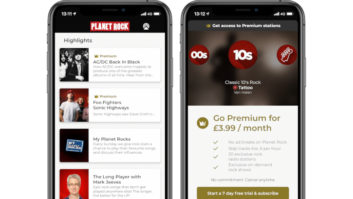Radio World’s “Guest Commentaries” section provides a platform for industry thought leaders and other readers to share their perspective on radio news, technological trends and more. If you’d like to contribute a commentary, or reply to an already published piece, send a submission to [email protected].
The author is CEO of the National Federation of Community Broadcasters, which has been serving the nation’s community radio stations since 1978. NFCB commentaries are featured regularly at Radio World.
Public goods are the invisible scaffolding of a healthy and functioning society. They are the shared resources and services that benefit everyone, regardless of income, background or social status. Clean air, public education, national defense, libraries, public broadcasting and emergency response systems are all examples of public goods — things that are available to all and not diminished by one person’s use.
But how do these shared benefits come into existence? They don’t simply arise on their own. Rather, public goods come about through a mix of collective will, government responsibility and civic action, often supported by nonprofit organizations.
At the heart of public goods is the principle of collective benefit. These goods serve everyone and contribute to the broader health and stability of society. For example, when a city invests in clean water infrastructure, everyone gains access to safe drinking water, public health improves and economic activity is supported. The benefits ripple outward, creating a foundation for communal wellbeing.
Yet, because public goods are non-excludable (you can’t prevent someone from using them) and non-rivalrous (one person’s use doesn’t reduce their availability to others), the private market has little incentive to create or maintain them. If no one can be charged directly for using them, private businesses typically find them unprofitable.
That’s where the government steps in. Governments exist, in part, to provide for the common good — especially when the market fails to do so. Through the power of taxation and public policy, governments pool resources and direct them toward services that serve all people. Roads, emergency services, public schools, environmental protections and national parks are the results of public investment.
In democratic societies, the public helps shape these priorities through voting, advocacy and civic engagement. Public goods, then, are often the outcome of a society’s values — what it chooses to care for and protect through its public institutions.
However, government action alone is not always sufficient. This is where the nonprofit sector plays a critical role. Nonprofit organizations frequently step in to identify and address unmet needs, advocate for marginalized communities and provide services that are too localized, experimental or underfunded for the public sector to take on.
From community health clinics to independent journalism to environmental stewardship, nonprofits mobilize people and resources for the public good — often with creativity and a deep connection to the communities they serve. In many cases, nonprofits partner with government agencies or receive public grants to expand their impact.
The National Federation of Community Broadcasters (NFCB) believes deeply in the civil rights of all residents to access free, fact-based information — the kind of information that enables people to be informed, to make the best choices for themselves and their families and to fully participate in our democracy.
This belief is grounded in the understanding that accurate information is not a luxury, but a necessity — a cornerstone of equity and civic life.
Yet in the DOGE hearing with NPR and PBS, we witnessed a sharp philosophical divide over the very idea of public goods. Increasingly, vital services like news, early education and public safety are being framed not as rights or shared investments, but as products — available only to those who can afford them.
As was plainly framed in that hearing and recent political rhetoric, these core services should no longer be public goods; they are to be privatized, paywalled or otherwise restricted.
The funding and provision of public media as a public good was effectively on trial — and lost.
But instead of a substantive debate about the role of free, community-rooted media in a democratic society, the conversation was buried under anti-Trans rhetoric, outrage over the lack of reporting on Hunter Biden’s laptop and Uri Berliner’s essay on NPR.
In that moment of political theater, the core question — “Do we still believe in a public’s right to free, fact-based media?” —was drowned out by spectacle.
This moment should alarm anyone who believes in shared investment, community resilience and the health of our democracy. Because public goods come about not only through funding mechanisms and institutions, but through a collective belief that some things — like truth, access to information, education and safety — should belong to everyone, not just the wealthy.
In short, public goods arise through intentional, collective action. They reflect our values, our priorities and our commitments to one another. When we invest in public goods, we invest in the conditions that allow everyone to live with dignity, opportunity and security.
That’s the role NFCB and community radio stations across the country play every day. We strengthen the public good — not with spectacle, but with service. Not with exclusion, but with access.
Through free, locally-rooted programming, emergency response coordination and trusted news and cultural storytelling, community broadcasters reaffirm a simple but powerful truth: We are better off when we care for each other and the world we share.
[Related: “Archiving Our Legacy: Community Radio and the Future of Public Broadcasting“]





